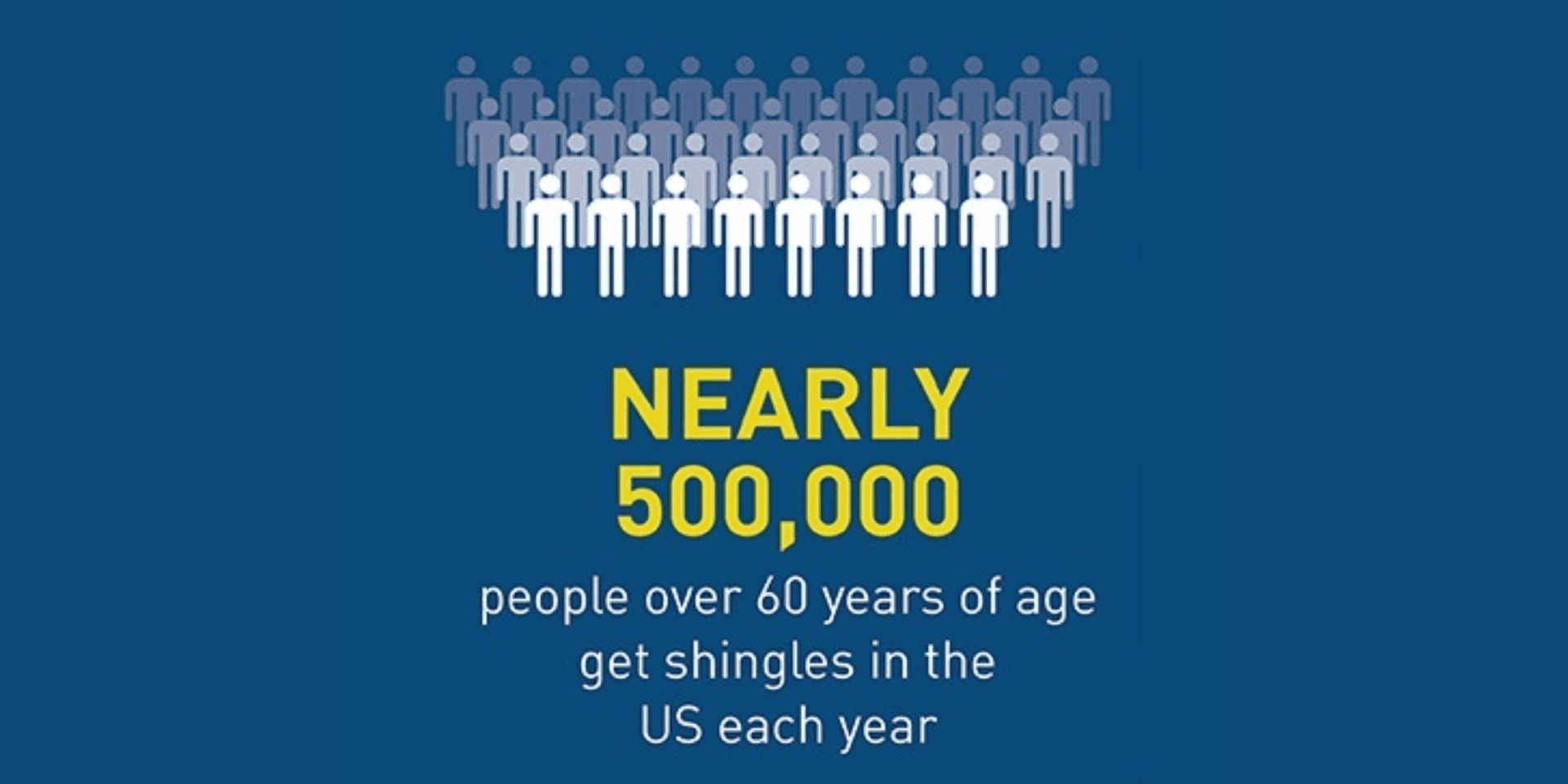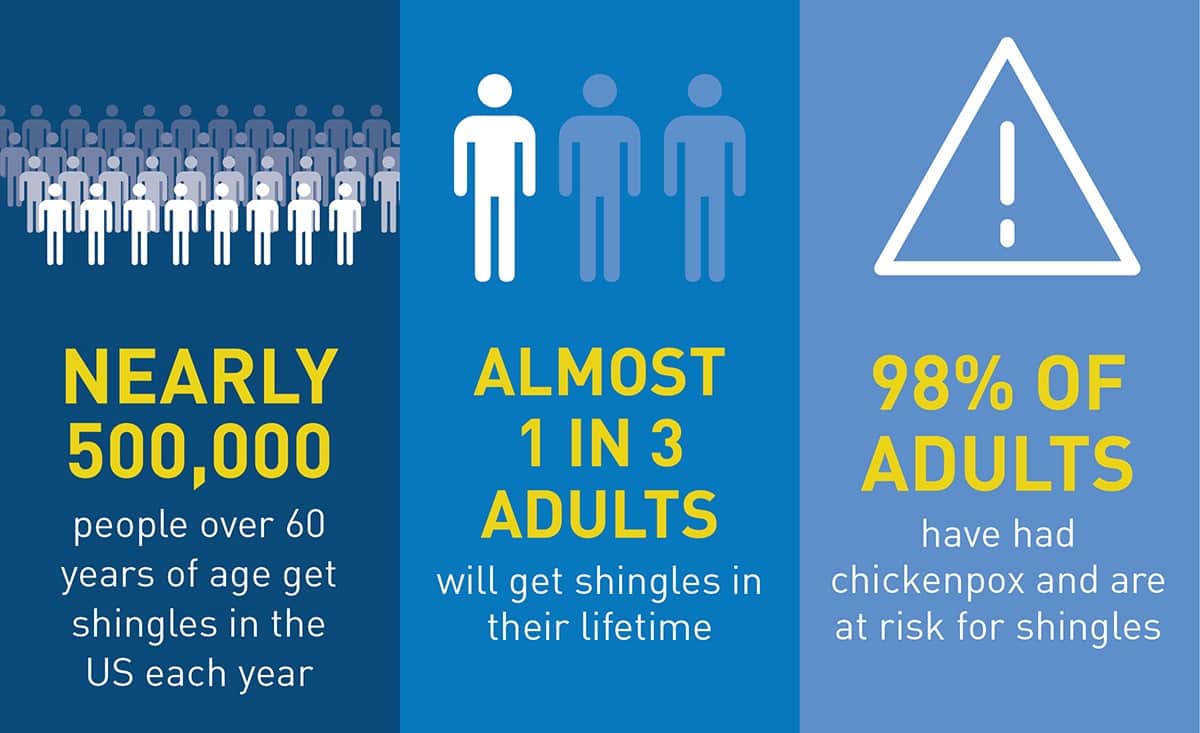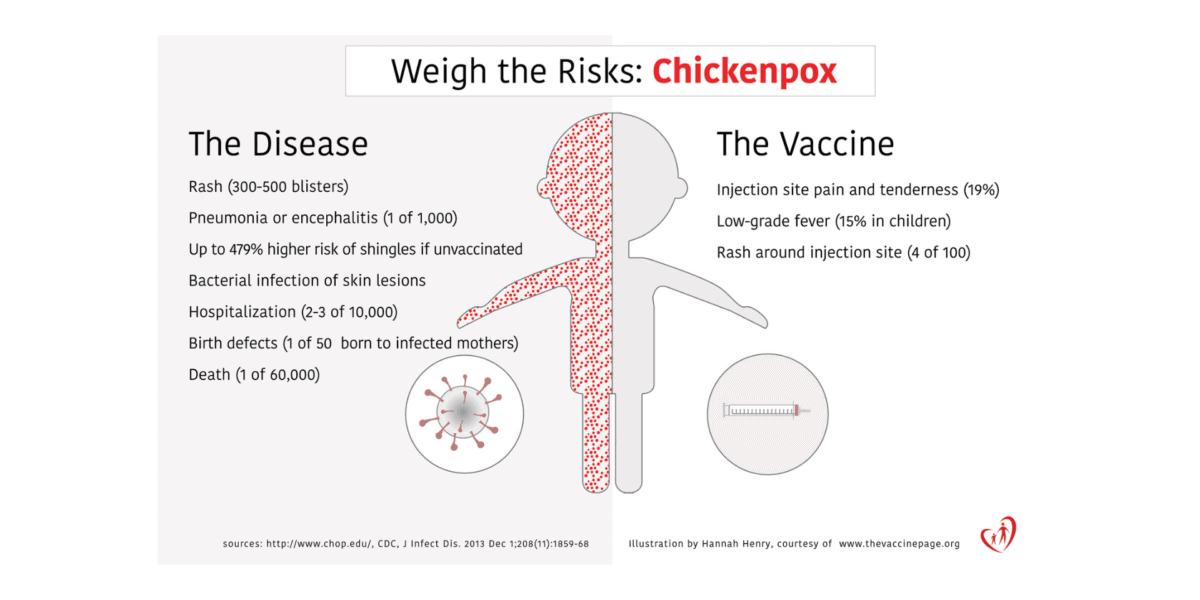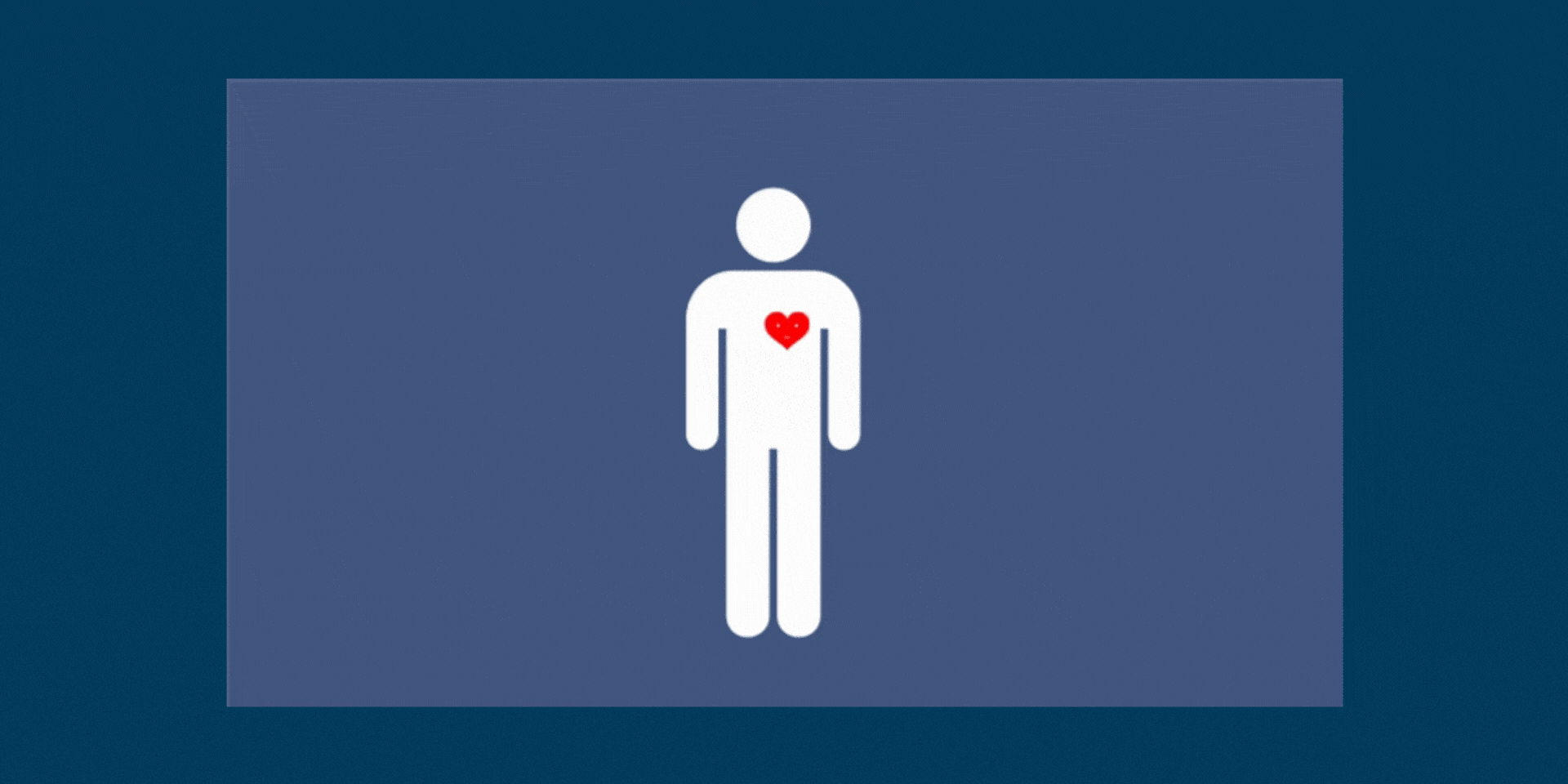
There are an estimated 1 million cases of shingles each year in the US and the risk of shingles increases with age. About half of all cases occur in men and women age 60 years and older. Almost 1 out of every 3 adults in the US will develop shingles, also known as zoster or herpes zoster, in their lifetime.
Adults age 60 years and older should talk to their healthcare professional about getting a one-time dose of the shingles vaccine which can reduce the risk of shingles and the long-term pain it can cause.
What is shingles?
Shingles (herpes zoster) is caused by the varicella zoster virus—the same virus that causes chickenpox. The virus stays inactive in the body for life and can reactivate years, or even decades later, causing shingles. Shingles is a viral infection that causes a painful rash that can be severe, can cause nerve pain, and may lead to vision loss.
 Who is at risk for shingles?
Who is at risk for shingles?
If you’ve had chickenpox, you are at risk for shingles. In the US, shingles strikes nearly one million people each year, and roughly half of them are age 60 years and older. Shingles is typically associated with aging as well as anything that weakens the immune system such as certain medications, cancers, or infections, but it can also occur in healthy children and younger adults. Shingles is not passed from person to person.
What are the symptoms of shingles?
The first sign of shingles is often a burning or tingling pain or itch, generally in a band-like distribution on one side of the body (around the waist, chest, stomach, or back) which can be mild or intense. The second sign is a rash of fluid-filled blisters, similar to chickenpox, but they typically occur in a cluster rather than scattered over the body. In some cases, blisters may also occur on one side of the face around the eye and on the forehead.
How can I help protect myself against shingles?
There is a safe, effective vaccine available to help prevent shingles. The Centers for Disease Control and Prevention (CDC) recommends the vaccine for all adults 60 years of age and older who do not have a major immune-compromising condition.
When can I get the shingles vaccine?
Although the vaccine is licensed in the US for adults age 50 years and older, the shingles vaccine is currently recommended for adults age 60 years and older.
How much does the shingles vaccine cost?
For adults age 65 years and older who have Medicare, the vaccine is generally covered for those with Medicare prescription drug plans (Part D) which cover all commercially-available vaccines recommended to prevent illness (including the shingles vaccine). Contact your Medicare drug plan representative to ask about coverage.
Adults between 60-64 years old should check with their medical insurance company, as some plans may cover the shingles vaccine.
What if I’ve already had shingles?
Even if you have had shingles, the shingles vaccine is still recommended to help prevent future occurrences of the disease.
Is the vaccine guaranteed to prevent shingles?
No vaccine is 100% effective, but vaccination can help reduce risk significantly. Some who get the shingles vaccine may still get shingles, but the vaccine can roughly cut your chances of getting shingles in half, and it can help make future occurrences less severe.
How can I learn more about shingles and whether or not I need the vaccine?
For additional information about shingles, visit www.nfid.org/shingles and take the shingles quiz to see if you are at risk and ask your healthcare professional if vaccination is recommended for you.
To join the conversation, follow NFID (@nfidvaccines) on Twitter, like NFID on Facebook, join the NFID Linkedin Group, and subscribe to NFID Updates.
Related Posts

Spread Information, Not Diseases
Vaccines are among the most significant achievements in public health and can help protect against 14 deadly diseases. Share these infographics to help spread information, not disease!

Developing Improved Vaccines for Older Adults
By 2030, the number of adults age 65 years and older in the United States is expected to grow to 71 million—at least 20 percent of the total population. It is particularly important during this stage of life to maintain healthy lifestyles and habits. Receiving recommended immunizations is an essential part of that process.,,

A Heart Healthy Lifestyle Includes Adult Vaccines
Along with Valentine’s Day, February is also American Heart Month, a great time to commit to a healthy lifestyle and make small changes that can lead to a lifetime of heart health. NFID reminds those with heart disease to stay up-to-date on all recommended vaccines, especially flu, pneumococcal, Tdap, and shingles…
